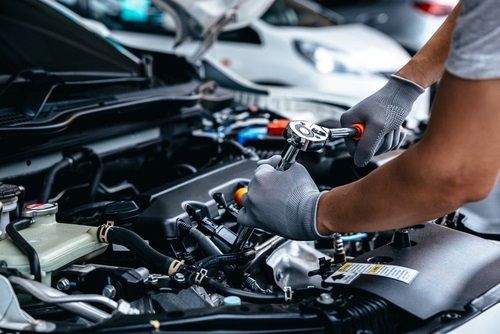Proper maintenance is key to ensuring your vehicle's long-term health and performance. By following a few simple preventative maintenance tips, you can save yourself from unexpected breakdowns and expensive repairs. Regular upkeep enhances your vehicle’s longevity and contributes to a safer and more efficient driving experience. Let's explore some essential maintenance tasks that every vehicle owner should prioritize.
Regular Fluid Checks and Changes
One of the most crucial aspects of preventative maintenance is monitoring and changing fluids in your vehicle. This includes engine oil, coolant, transmission fluid, and brake fluid. Regularly checking these fluids and changing them at the recommended intervals helps to keep your vehicle's vital systems operating smoothly. Low or contaminated fluids can lead to engine overheating, poor shifting, brake failure, and other serious issues. Consult your vehicle's manual or seek professional assistance to ensure you use the correct fluids and adhere to the manufacturer's recommendations.
Tire Care and Rotation
Proper tire maintenance is essential for both safety and fuel efficiency. To ensure your tires stay in optimal condition, follow these key tips:
- Regularly check tire pressure: Use a reliable tire pressure gauge to check the pressure of each tire, including the spare. Refer to the vehicle's manual or the sticker inside the driver's door for the recommended pressure. Underinflated or overinflated tires can affect handling, fuel economy, and tire wear.
- Inspect tire tread depth: Adequate tire tread depth is crucial for traction and safe driving, especially in wet or slippery conditions. Use a tread depth gauge or the penny test to check the depth. Consider replacing the tires if the tread depth is close to or below the recommended limit.
- Rotate your tires: Rotating your vehicle's tires at regular intervals helps promote even wear. The front and rear tires experience different levels of stress and wear, so rotating them helps distribute the workload evenly. Consult your vehicle's manual or an auto repair professional to determine the recommended rotation pattern and interval.
- Wheel alignment: Periodically have your wheels aligned to ensure proper tire wear and handling. Misaligned wheels can cause uneven tire wear, vibration, and reduced fuel efficiency. If you notice your vehicle pulling to one side or uneven tire wear, it may be time for wheel alignment.
By following these tire care tips and incorporating them into your preventative maintenance routine, you can maximize the lifespan of your tires, improve fuel efficiency, and enhance overall safety on the road.
Battery Inspection and Cleaning
The vehicle's battery is its power source, and a weak or dead battery can leave you stranded. To avoid unexpected battery failure, periodically inspect the battery terminals for corrosion and ensure they are clean and tightly connected. Clean any buildup using a battery cleaning brush or a mixture of baking soda and water. Consider regularly testing your battery's voltage to assess its health and replace it if necessary. If you're unsure about battery maintenance, consult an auto repair professional to assist you with testing, cleaning, and replacement.
Regular Inspection of Belts and Hoses
The belts and hoses in your vehicle play a critical role in the proper functioning of various systems, including the engine, cooling system, and air conditioning. Over time, these components can deteriorate and develop cracks, leaks, or become loose. Regularly inspect the belts for signs of wear, such as fraying or cracking, and ensure they are properly tensioned. Similarly, check the hoses for leaks, bulges, or soft spots. Replace any worn or damaged belts and hoses promptly to prevent costly engine damage or system failures.
Preventative maintenance is the key to keeping your vehicle running smoothly and avoiding unexpected breakdowns. By following these simple tips and scheduling regular check-ups with an auto repair professional, you can ensure your vehicle's longevity, safety, and optimal performance. Remember, investing time and effort in preventative maintenance now will save you from costly repairs and keep you on the road with peace of mind.


